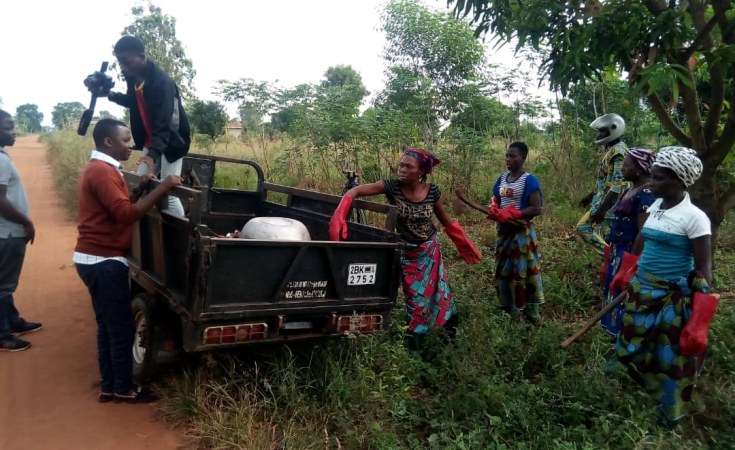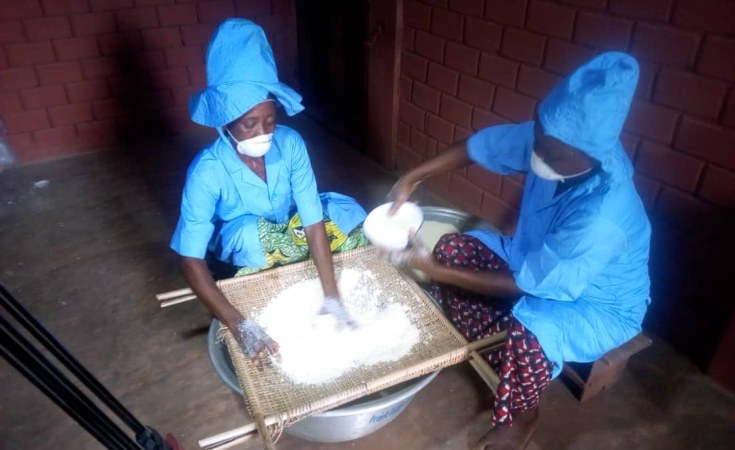Dakar and Cape Town — The United States African Development Foundation (USADF) is celebrating a decade of its Feed the Future campaign, which enables partner organisations to target the root causes of poverty and hunger. Its work has been focused on the most marginalized communities, where there are concentrations of poverty and hunger - with all the attendant social and health problems, including 'stunting', when children who are undernourished before their fifth birthdays will never be able to achieve their full mental or physical potential. Projects in Burkina Faso and Benin, which receive USADF grants, have produced expertise and contributed to economic stability for local agricultural producers.
Growing rice in Burkina Faso
In Burkina Faso, the Cooperative Mitiiri Rice Production and Marketing Project led local rice producers to grow an increasingly sustainable supply of the grain, while lowering dependence on imports from China.
Established in 2009, Mitiri - then named Association of Young Dynamics for the Development of Bagre - faced financial difficulties. Funding from the USADF helped it to secure production equipment, storage and and funds to buy rice.
One of the challenges of rice cultivation in the country is the lack of productive investments and adequate training. USADF grants also provided working capital, capacity building and business advisory assistance to modernize organization, provide training to members on post-harvest techniques, and improve operational methodology.
As a result, young farmers in the cooperative are seeing higher domestic sales and revenues and are providing jobs that contribute to increasing youth employment.
Challenges and the Reduction of Chinese Imports
Kre Daouda, the accountant for SCOOPS Mitiiri, which manages the coop's operations, shared some of the trials and successes that come with rice growing.
One of the biggest challenges is insufficient production due to the Covid-19 outbreak. "We have noticed that with the pandemic, the demand for rice at the local level increased, and rice production to be adjusted. The training schedule on agricultural entrepreneurship did not benefit producers. There was also an absence of manpower to work in the fields," Daouda said.

But the travel restrictions brought by the pandemic also meant that SCOOPS Mitiiri sold more products. "The reduction in rice imports from China had a great impact on the sale of local rice. it must be said that we no longer have the difficulties as before in selling our products," Daouda said.
The co-operative aims to continue making gains in improving agricultural technique and providing employment in the coming years, believing that this path to success is something achievable for the entire continent.
"We believe that Africa as a whole will be able to produce rice without importing, because it is not the land that is lacking but rather the technical and financial means. At the rate things are going, with the interest of our agricultural officials and the support of non-governmental organizations, agricultural yields are improving. We are sure that Africa will meet these challenges.".
"USADFs contribution has helped make us a leader among the co-operatives in our area." Daouda said.
Between 1 October 2010 and March 31, 2020, USADF invested more than U.S.$10 million in Burkina Faso, supporting 157 enterprises.
Women of Benin at Forefront of Gari Production
In Benin, the Gbenondjou Cassava Production and Commercialization Expansion Project saw the development of the Ajahonmè's Manioc Transformation Cooperative, a project which aims to feed the population of West Africa.
The majority of the 25-member co-op are women - 21 of them in fact - and they produce a variety of gari or cassava used in many cuisines across West Africa.

The goal of economic empowerment of women is a cornerstone of the Cooperative. While a challenge, Gbezounke Sylvie, president of the Adjahonmey "Gbenondjou" Cassava Transformation cooperative, believes this is achievable.
The organisation's efforts secured them a three-year deal to deliver gari to their newest client, in Senegal. Sylvie says that a first delivery was already made from Cotonou to Dakar, the Senegalese capital.
According to Sylvie, this new dynamic was boosted thanks to the support of the USADF, which granted Gbenondjou much-needed funds between 2017 and 2019.
The Gbenondjou Cooperative used these grants to build production capacity and purchase equipment to process cassava into gari, while also investing in training its members in financial management, marketing, improved production techniques and hygiene practices to boost production. This, says Sylvie, made it possible to strengthen the competitiveness and professionalism of the co-op and contribute to food security, advancing the economic status of the rural women and improving their quality of life.
From Producers to Successful Women Entrepreneurs
The lives of the women involved in the co-op have been transformed by grant funding, its president says, allowing its members to double production.
"This support has enabled them to make their products competitive, while respecting the health and commercial standards required on the market. "In the market, our products are sold first, because they are now better presented," Sylvie says proudly.
Profits made have enabled the co-op to acquire its own land and expand cassava farming areas which, over time, will help boost the level of yield and production.
"Since this new situation, the women members of the cooperative have spent less time in the fields and found more time to take care of their household and their children."


